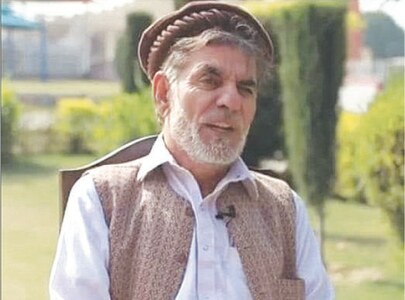Peshawar High Court Chief Justice Waqar Ahmad Seth inaugurated the first child protection court in the province on March 16 under the Khyber Pakhtunkhwa Child Protection and Welfare Act, 2010. Additional district and sessions judge Ms Wadeeya Mushtaq Malik has been posted as the presiding officer of the said court.
The judge has also been assigned powers of juvenile courts under the Juvenile Justice System Act, 2018. With this development the law on juvenile offenders has now been in the focus as experts believe that apart from setting up of an exclusive juvenile court, the government should also implement other provisions of the law, which have so far been ignored.
The Juvenile Justice System Act (JJSA), 2018, replaced the Juvenile Justice System Ordinance 2000 which was promulgated during the military government of retired General Pervez Musharraf. Several changes were made in the present law as compared to the previous one specially the process of diversion, setting up of juvenile rehabilitation centres and observation homes and juvenile justice committees.
The JJSA received assent of the President of Pakistan on May 18, 2018, and was published in the official gazette on May 24. However, while powers of juvenile courts have been assigned to judges across the province, steps have not been taken to implement other provisions of this law. The law defines a juvenile as a child who may be dealt with for an offence in a manner which is different from an adult. A child means a person who has not attained the age of 18 years.
Section 5 of the Act provides that an arrested juvenile shall be kept in an observation home and the officer in-charge of the police station shall, as soon as possible, inform guardian of the juvenile and concerned probation officer.
The law defines an observation home as “a place where a juvenile is kept temporarily after being apprehended by police as well as after obtaining remand from Juvenile Court or otherwise for conducting inquiry or investigation for the purpose of this Act.”
The law envisages establishment of juvenile rehabilitation centre, which means “a place where a juvenile may be kept and given education, vocational or technical training for his mental, moral and psychological development and includes certified institutions, juvenile training institutions, borstal institutions, vocational centres, darul-amaan and women crisis centres established by the Government or by voluntary Organisation certified by the Government.”
Despite this mandatory provision so far no observation home or juvenile rehabilitation centre has been functional in any of the districts across the province.
Section 17 of the Act also provides that no female juvenile shall in any circumstances be apprehended or investigated by a male police officer or released on probation under supervision of a male officer. Similarly, a female juvenile shall only be kept in a juvenile rehabilitation centre established or certified exclusively for female inmates. Another important provision is about the setting up of Juvenile Justice Committees (JJC) for each sessions division within three months of enactment of the law. The committee consists of four members, including a serving judicial magistrate who shall also head the committee, district public prosecutor, a member of local bar and a probation officer or social welfare officer not below the rank of BPS-17.
The JJC has been assigned different functions, including disposal of cases through diversion upon referral from the police, prosecution or the Juvenile Court within a period of one month from the date of the referral; and, inspect observation homes and Juvenile Rehabilitation Centres and may give directions to the officer in-charge of such places for the measures to be taken for the welfare and social reintegration of the juvenile kept under their supervision.
A major deviation from the JJSO, the present Act includes provisions related to restorative justice and provides for diversion in cases of juvenile offenders. The Act defines ‘diversion’ as: “An alternative process of determining the responsibility and treatment of a juvenile on the basis of his social, cultural, economic, psychological and educational background without resorting to formal judicial proceedings.
Section 9 of the JJSA provides that with the consent of a juvenile or his guardian, as the case may be, the complaint against the juvenile shall be referred to the JJC for disposal of the same through diversion when a juvenile is accused of a minor offence or where a juvenile is charged in a major offence and his or her age is below 16 years of age.
The JJC shall dispose of a case, with consent of the person against whom the offence was committed, by resorting to different modes of diversion, including restitution of the moveable property, reparation of the damage caused, written or oral apology, participation in community service, payment of fine and cost of the proceedings, placement in juvenile rehabilitation centre, and written and oral reprimand.
In the present law, the role of the probation and reclamation department has further increased as after arrest of a juvenile the concerned probation officer has to obtain such information about the juvenile and other material circumstances which may be of assistance to the juvenile court for making inquiry.
An important provision, which needs to be highlighted, relates to confidentiality of a juvenile offender. Under section 13 whoever prints or publishes the name or any matter which may make known identity of a juvenile shall be punished with imprisonment up to three years and shall also be liable to fine. However, this provision does not extend to any printing or publishing if that is by or under the order in writing of in-charge of a police station in good faith or by or with the authorisation in writing of the juvenile or the next-of-kiln of the juvenile. Experts believe that this law needs to be highlighted and all the stakeholders, including the media, police, probation and reclamation, prosecution and prison departments and civil society, should be made aware of it.
Published in Dawn, April 8th, 2019













































